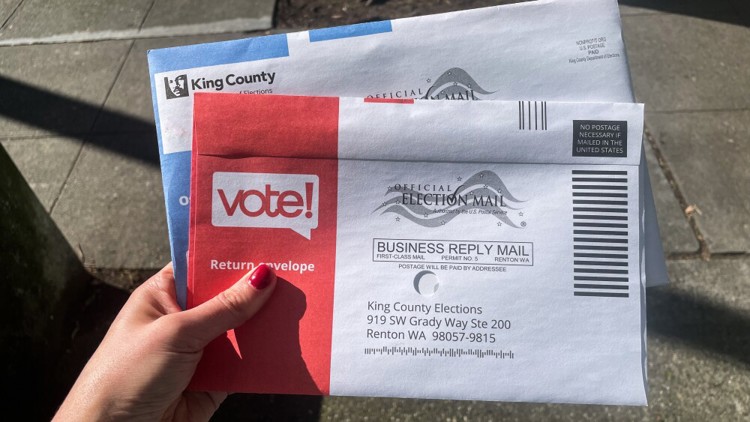SEATTLE — A survey of voters in July showed approval of Washington's four statewide initiatives, including repealing the Climate Commitment Act and the state's long-term care program. Three months later and voters appear more likely to reject three of them.
There are several possible reasons for this. That includes messaging, according to James Long, a professor of political science at the University of Washington.
Long pointed out there has been a lot of advertising urging people to vote "no." Those messages have been easier to relay, too, because there aren't other statewide measures on the ballot that the "no" campaign would otherwise support.
"If there's a consistent message, which is yes on all of them or no on all of them, then I think that hurts these initiatives in a state that's overwhelmingly Democratic," Long told KING 5.
Along with advertising, Long said the "no" campaign has also been able to highlight the aspects of the initiatives that would go against the ideals of Democrats.
SurveyUSA, which conducted the polling for The Seattle Times, KING 5 and University of Washington's Center for an Informed Public, points out that opposition to all ballot measures tends to increase as Election Day nears.
On the ballot are Initiatives 2117, 2109, 2124 and 2066. All four are sponsored by conservative group Let's Go Washington.
If approved by voters, the initiatives would:
- Repeal the state's Climate Commitment Act (I-2117)
- Repeal the state capital gains tax (I-2109)
- Allow people to opt out of WA Cares, the long-term care program (I-2124)
- Strike a passage of HB 1589 requiring utilities to assess the costs and benefits of replacing natural gas pipelines, infrastructure projects and utility end uses with electric alternatives (I-2066)
Of those initiatives, I-2066 is the only one the latest KING 5 News Poll shows voters approving in the November general election with 44% approval. The rest have at least 48% disapproval.
The questions in the October survey included more detail and were more closely aligned with the initiative language, which was not available when the survey was conducted in July.
Despite the latest survey showing passage of the three other initiatives unlikely, there's enough undecided voters where either outcome is technically possible for I-2117 and I-2124.
I-2117 would ban the state imposition of the carbon market program, requiring the largest polluters to pay into a fund to compensate for carbon emissions. According to the poll results, 48% of likely voters would vote against the initiative and 30% voting to approve it, with 22% saying they are undecided.
I-2124 would allow people to opt out of the WA Cares Fund. Employers in Washington state began deducting premiums from paychecks in July 2023 to fund it. The WA Cares Fund will eventually be used to help Washingtonians access a $36,500 benefit — adjusted annually for inflation — for long-term care insurance. The survey showed 49% of voters would vote "no," 28% would vote "yes," and 23% undecided.
Long said undecided voters can make the outcome difficult to predict. It's possible those who took the survey who were undecided weren't fully informed at the time and might not be until filling out their ballot. If they are still uncertain, they also may just not vote on the initiatives.
However, the way the initiatives are written uninformed voters may lean towards "no" simply based on the language, Long said.
A sticking point when it comes to the initiatives is what a "yes" and "no" vote actually mean. A "yes" vote of the initiatives means you are in favor of repealing part or all of the laws in question. A "no" vote means you want to retain the status quo.
Long said because there's a positive association with "yes" and negative with "no," it can make it all "get scrambled very easily."
The general election is Nov. 5. Ballots must be postmarked by Election Day or returned to a ballot drop box by 8 p.m. on Election Day to be counted.



